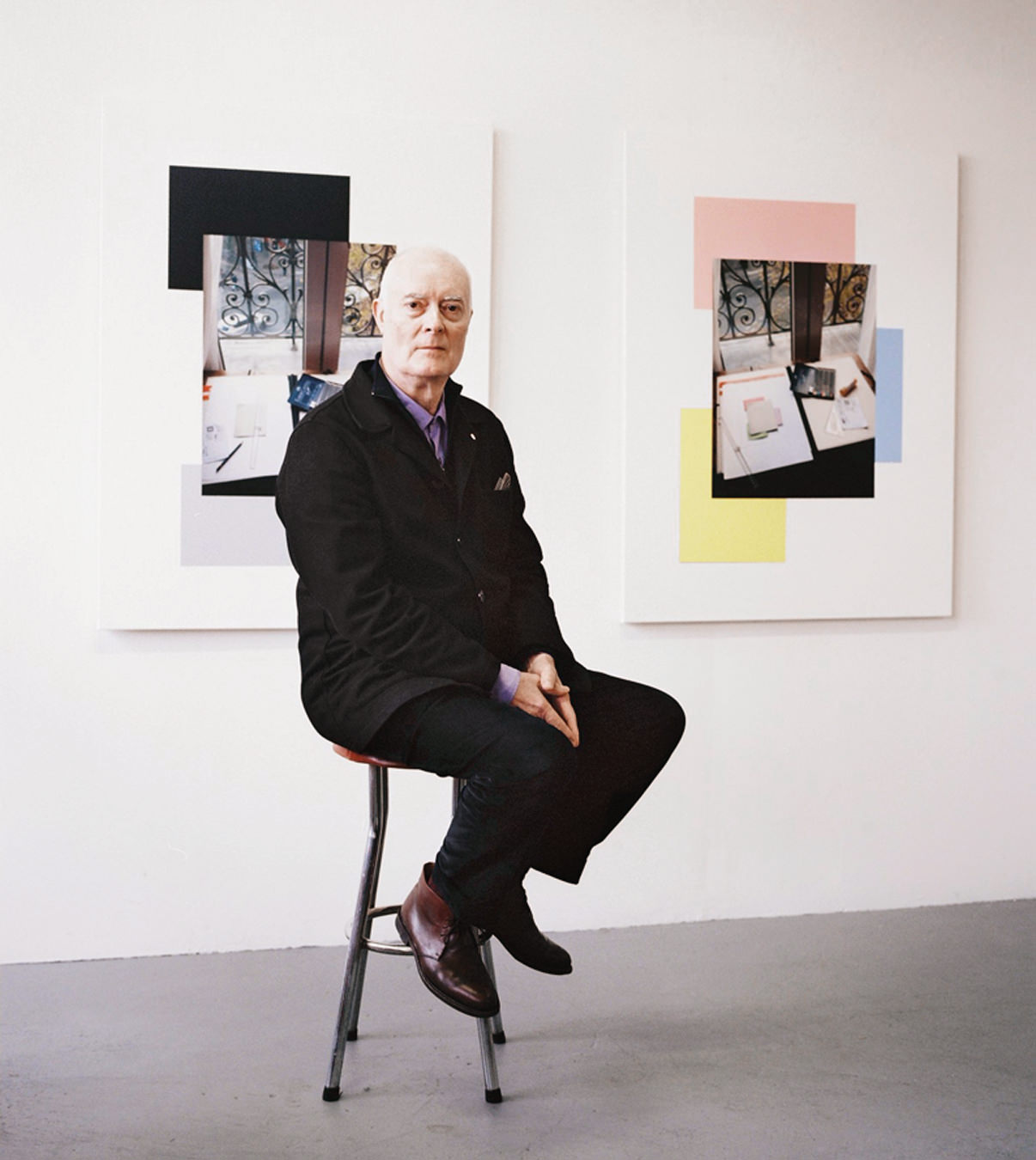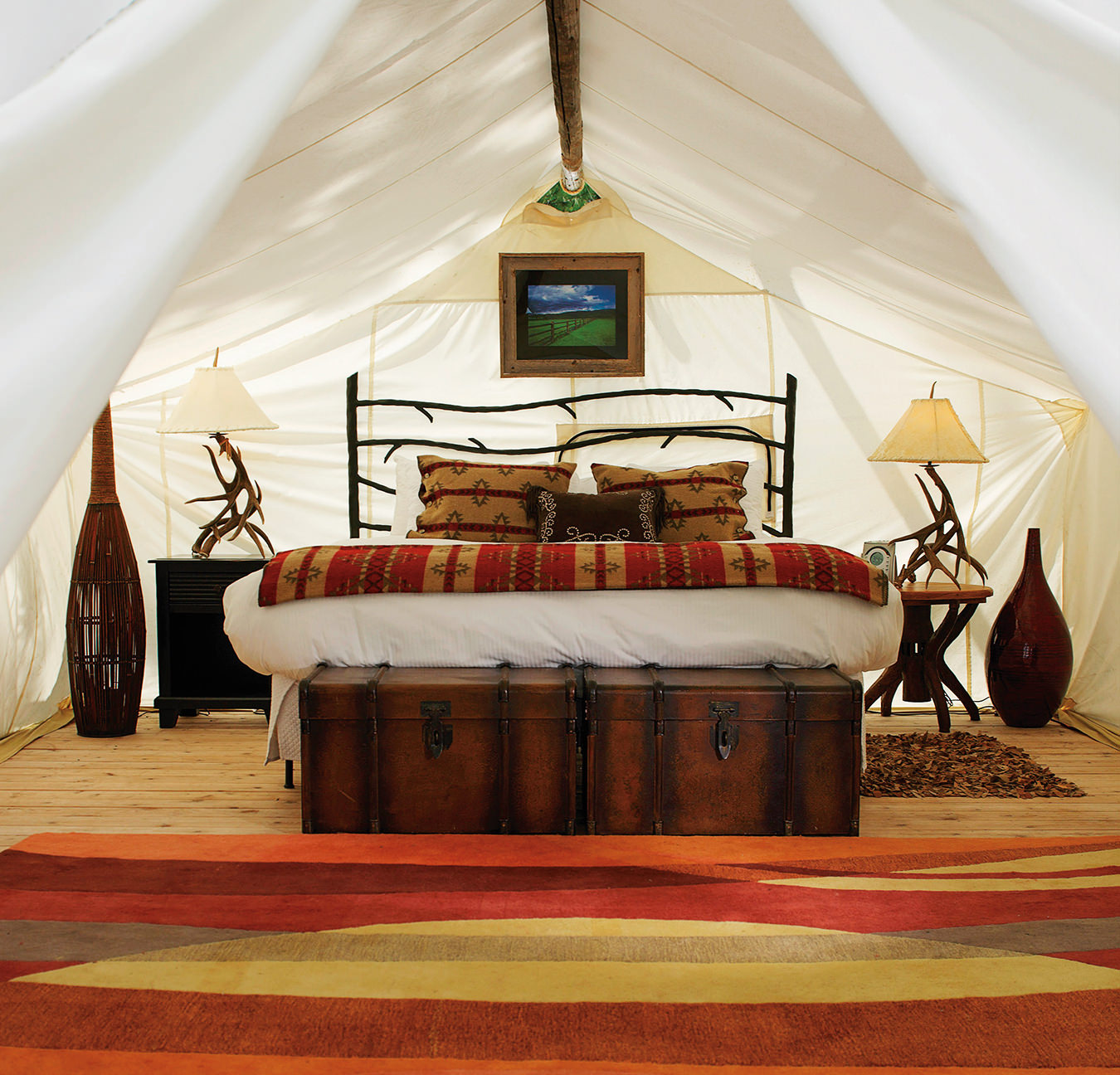Düsseldorf Offers Up a Surprisingly Diverse Banquet of Art and Culture
Beer, steel factories, a bustling autobahn, and sports fanatics. That encapsulates the classic gritty image of Düsseldorf, Germany’s seventh-largest city.
Admittedly, the Rhine-Ruhr centre of 650,000—heavily reconstructed after the Second World War—still features many of those elements. For instance, soccer and hockey fans respectively think of it as a host city for the UEFA Euro 2024 tournament and the 2027 IIHF World Championship.
However, the 21st century has seen Düsseldorf metamorphose into an unexpectedly funky, photogenic cultural destination, without losing touch with its essence. That extends to the diverse dining options, which reflect historical immigration trends.
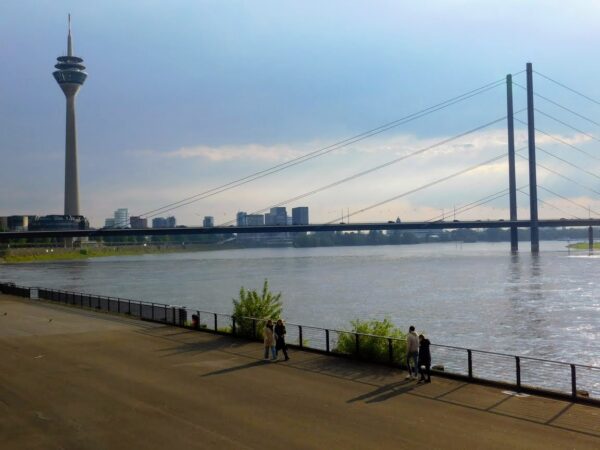
You can feast on a platter of meat-free çiğ köfte, a Turkish appetizer made with bulgur and organic spices and served in taco wraps, at Berlin Çiğköfte near Düsseldorf’s central train station. Or devour pork garlic ramen at ever-teeming Takumi on Immermannstrasse. In the 1950s, Japanese companies flocked to Düsseldorf for access to heavy industry, and today its 7,000-strong Japanese population and restaurant scene justify the nickname “Little Tokyo on the Rhine.”
While Düsseldorf’s contributions to the rock scene include 1980s underground legends like punk band Die Toten Hosen and metal vocalist Doro Pesch, Kraftwerk remains the best-known musical export from the capital of North Rhine-Westphalia.
To explore the legacy of the 1970s electronic music pioneers (“Autobahn,” “Trans-Europe Express”), The Sound of Düsseldorf walking tour with Sven-André Dreyer and Michael Wenzel is a stimulating choice. The veteran journalists colourfully explain stark sites ranging from the Elektro Müller recording studio to the Mannesmann-Hochhaus skyscraper designed by the father of Kraftwerk co-founder Florian Schneider.
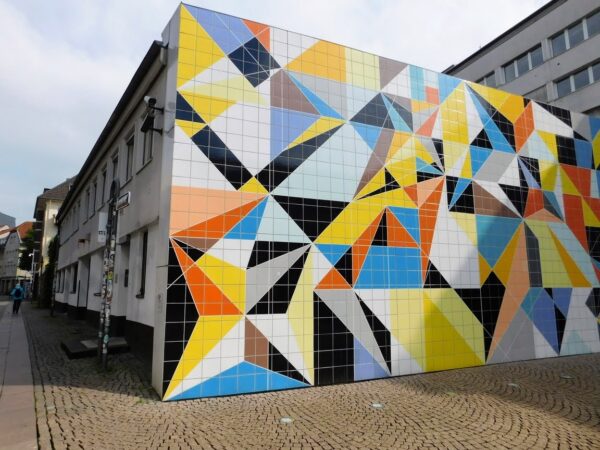
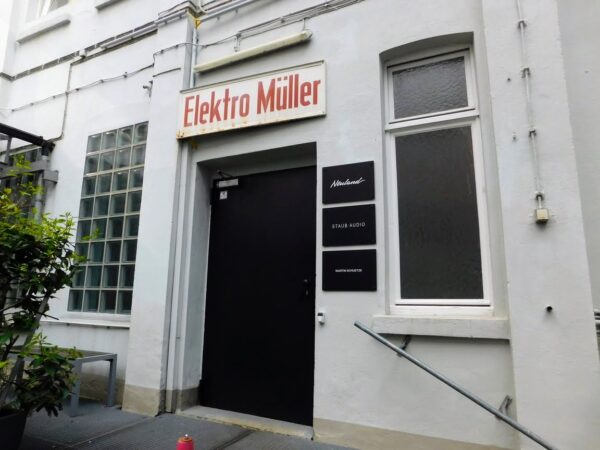
The interactive 1993-launched Filmmuseum Düsseldorf is well worth visiting. Posters, costumes, and memorabilia commemorate Düsseldorf-filmed productions ranging from 1982’s Kamikaze 1989, starring Rainer Werner Fassbinder, to 2012’s Cloud Atlas, starring Tom Hanks and Halle Berry. The silent film era gets its due, including a 1921 oil portrait of German starlet Fota Nielsen smoking a cigarette with Marlene Dietrich-like insouciance.
Throughout Düsseldorf, striking public art adds vibrancy to traditional landmarks. Not far from the venerable Uerige brewery, where patrons quaff Altbier (a top-fermented dark beer) from small glasses at communal tables, you’ll find Karl-Henning Seemann’s 1978 bronze sculpture titled Auseinandersetzung (“The Confrontation”). A popular photo op, it dramatizes intergenerational conflict with two men in a staredown.
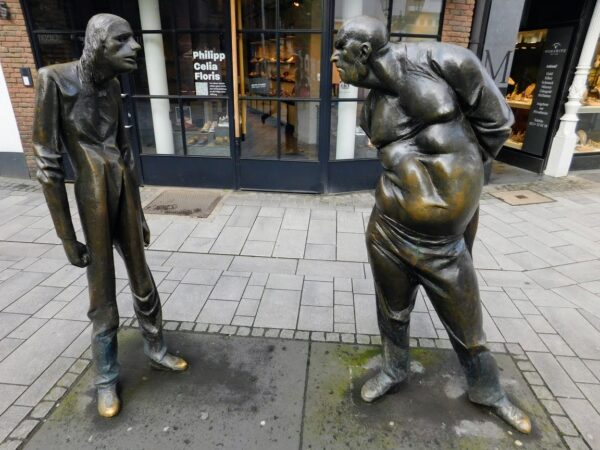
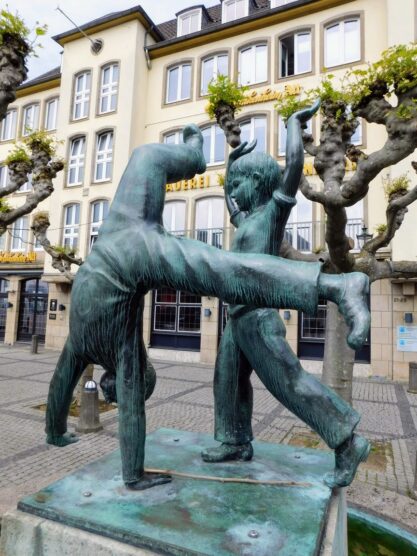
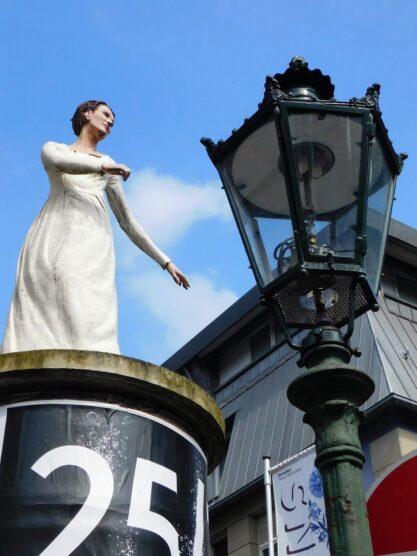
From Alfred Zschorsch’s cartwheeling boys in the Burgplatz’s Radschläger fountain to Christoph Pöggeler’s woman in a white dress atop a column near the Filmmuseum, there is no shortage of visual treats for Düsseldorf visitors.
Ultracool is Düsseldorf’s rich variety of modern art museums. The lively and provocative collection of 20th-century works at K20 in the Altstadt includes the likes of Joan Miró’s surrealism-influenced Nude With a Mirror (1919) and Pablo Picasso’s abstract Woman Sitting in an Armchair (1941). Don’t miss Andy Warhol’s large screen painting of Düsseldorf sculptor Joseph Beuys (1980). In 2024, K20 also staged an exhibition comparing the futuristic visions of Hilma af Klint and Wassily Kandinsky.
K21, a short walk south, occupies a grand neo-Renaissance building overlooking a small lake. It is noted for cutting-edge contemporary exhibitions like Forthcoming. Speculations in Urban Space, featuring Liam Young’s Blade Runner-esque cityscapes in the short film Planet City (2021).
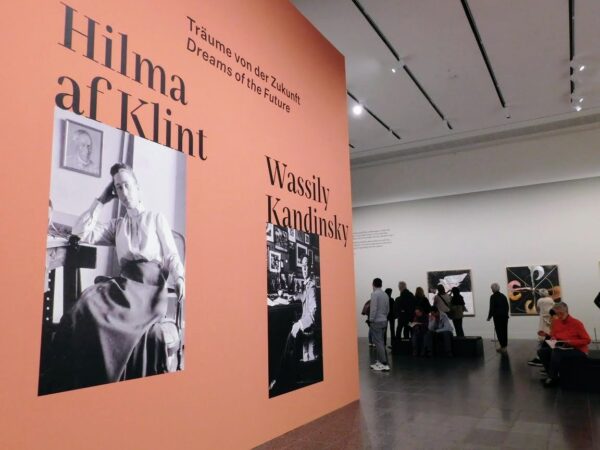
Meanwhile, the once-fusty Kunstpalast, home to some 130,000 items spanning 11 centuries, completed an extensive overhaul in 2023. “We wanted to break down hierarchies and present cultures side by side chronologically,” curator Westrey Page explains. A telling example is the juxtaposition of Peter Paul Rubens’s 17th-century masterpiece The Assumption of the Virgin Mary with Ghanaian artist El Anatsui’s Earth Cloth (2003), an aluminum bottle-cap tapestry that comments obliquely on the slave trade and globalization.
In Düsseldorf, the passion for art even trickles down to pro athletes. Take Moritz Wirth, a Düsseldorfer EG defenceman, who recently organized an Art on Strings exhibition of his father’s handcrafted violins imaginatively altered by international artists. “Hockey is my priority, but after practice, lunch, and my nap, I still have half the day to indulge my passion,” Wirth says.
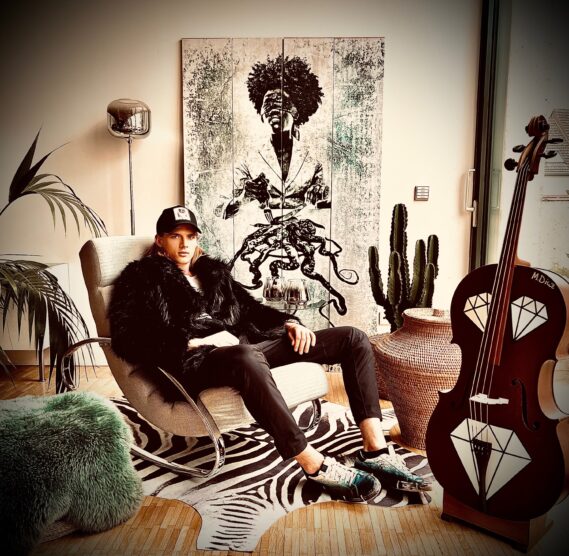
Courtesy of Art on Strings
To break up a day-long culture workout, a relaxing one-hour KD boat tour on the Rhine offers an engaging Düsseldorf panorama, from the maze-like Altstadt to the Media Harbour’s surreally contoured Frank Gehry buildings.
The 240-metre-tall Rheinturm—Düsseldorf’s answer to Seattle’s Space Needle—adjoins the riverside pedestrian promenade, underneath which the autobahn now runs, instead of in full noisy view as it did before 1990. With locals sunning themselves in lawn chairs that face sheep grazing across the Rhine, the vista is a work of art in itself.
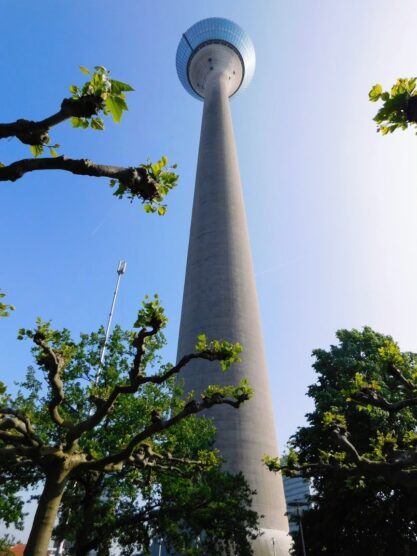
When you finally retire for the evening, the boutique Hotel Sir Astor delivers a British-inspired retro aesthetic. Red-tartan carpets, Colmore clocks, and black-and-white photos of baronial manors complement comforts ranging from organic Damana soaps to the piece of cake that appears daily in your room under a glass dome.
Especially for art buffs, Düsseldorf’s surprising, expansive commitment to culture makes it as worthy of exploring as better-known German cities like Berlin and Munich.
That commitment is as ambitious as soccer club Fortuna Düsseldorf’s plan to offer free admission to all matches via massive sponsorship deals. It is as refreshing as a Fresh Kick salad with zucchini and chickpeas on Wilma Wunder’s terrace in Martin-Luther-Platz. There is a special Düsseldorf energy that lingers with you weeks after you’ve returned home.



